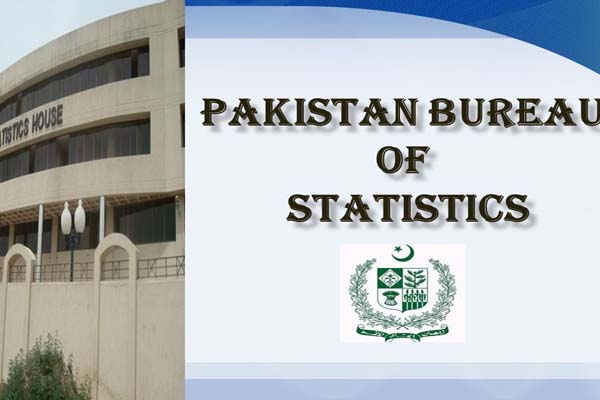ISLAMABAD: In a surprising revelation, officials of Pakistan Bureau of Statistics (PBS) admitted that the bureau was collecting incomplete or partial data for lack of cooperation on the part of provinces and the Ministry of Industries. The officials claimed that the figures related to manufacturing sector were based on estimates as the industries usually avoid sharing data required to provide while answering PBS questionnaires.
During a meeting of National Assembly Standing Committee on Statistics, held here on Tuesday, the PBS officials said that most of the industrial units were not responding to the questionnaire being forwarded by the FBS through the relevant provincial departments.
Statistics Secretary Rukhsana Yasmin informed the committee that some 35,000 industries have returned the completed questionnaires to PBS through the Secretary Industries Punjab, while 3,400 industries have responded in KP and 206 units in Balochistan.
The committee was being briefed by the officials over various census conducted by the PBS, and it was informed that the last Census of Manufacturing Industries (CMI) was conducted in 2005-06, whereas it has to be conducted every five years to ensure relevancy and authenticity.
Committee Member Dr Nafisa Shah, while showing dissatisfaction over the reply of PBS, said the excuses of noncooperation on part of provinces were highly unjustified to avoid production of data or reports. She questioned the PBS members, “Why is PBS not independent enough to devise its own systems? An important economic planning tool could not be completed only because of lack of cooperation from one provincial department,” she said adding that international institutions were depending on the old data provided by PBS for releasing any statistics about Pakistan.
She said the ministry of statistics was showing no progress or reforms in data collection and presentation despite considerable technological advancements in the world.
Committee Chairman Dr Ramesh Vankwani stressed for improving and modernising PBS as all the national planning was dependent upon the data provided by the PBS.
“If we do not have the data of industries and agricultural sector than how do we plan our economic policies. As a matter of fact, even organisations such as the United Nations and other international bodies depend on data provided by PBS,” Dr Vankwani added.
The committee was informed that the result of 2010-11 CMI was withheld due to the negligible response from the Sindh province, which has the largest industrial base in the country.
“We are facing a similar situation now too as the department of industries is not responding to the questionnaires for CMI-2015-16,” Rukhsana Yasmin said.
The committee was informed that several structural changes were made in CMI 2015-16 but the response was not encouraging mainly from Sindh as only 2,100 industries responded out of the known database of more than 8,500 industries in Sindh.
Incidentally, the officials acknowledged that the figures in the economic survey and other results were based on estimations as a limited number of industries responded to the PBS questionnaires which also included details of the labour force, tax paid and future plans of units.
There are two sources of data on large-scale manufacturing, the CMI and monthly data on manufacturing sectors output. CMI measures production and structural changes of large-scale manufacturing industries and takes into account new industrial developments and new industrial products and establishments. The results of CMI are used to develop new weights for Quantum Index of Manufacturing (QIM) which measures the changes in production of LSMI over time on monthly as well as a cumulative basis. The presently used weights for QIM were derived from the CMI 2005-2006.
Meanwhile, the committee has decided to call the provincial departments of industries in its next meeting, in an effort to address these issues.
Talking to media an official of the ministry also admitted that the data of the bureau is largely based on the responses or replies it received from sources, thus making it somewhat ambiguous.




